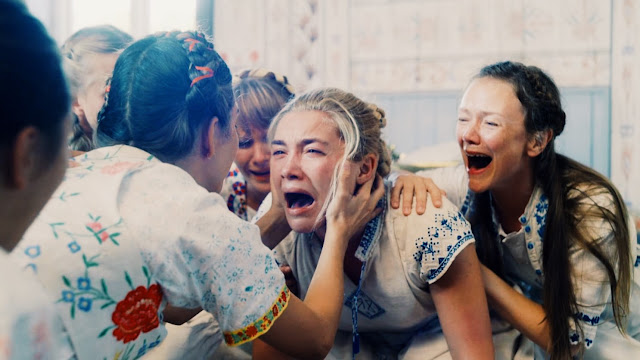8 1/2 (1963)
FILM CLASSIC REVIEW #1
The Fellini Complex - an analysis of 8 1/2
The Fellini Complex - an analysis of 8 1/2
After WWII, Italy went through a cinematic renaissance that shaped the way we've watched movies ever since. Italian Neo-Realism laid the groundwork for movies that dare inspire to feel real, and in the moment. No longer was the cinema an extended apparatus to the theater. The Italians made it possible to use the camera as it purely was meant to be, to capture reality. In walks Federico Fellini, the man, the artist and the noun. Generations from now, the name Fellini will still resonate with all moviegoers. Fellini had set a new standard for modern cinema, in a time when the standard of "Neo-Realism" was considered a new standard in itself. Fellini wasn't just own filmmaker. He was also his own therapist. From the minute he woke up in the morning, to the minute he fell asleep, nothing else in the world mattered more to Fellini than Fellini. Suddenly, he brought his own careless narcissism into his own pictures. Suddenly, cinema became self-reflexive. We're talking about movies about movies, and filmmakers about filmmakers. What a concept! Honestly, Italian Neo-Realism couldn't get any realer than that. The movie that caught the world's fascination over Fellini's self-reflexivity is what is widely considered his masterpiece, and one of the defining films of the 20th century, 8 ½ . To anyone with any knowledge of Fellini, it is practically his biopic. Nonetheless, whatever it is, it's brilliant.
8 ½ centers on famed film director Guido Anselmi. Remember, Guido is Federico Fellini. The art world loves him, and he's about to make yet another astounding picture. The problem is, Guido doesn't even know where to start. He's completely run out of ideas. He has producers, actors, production crews and critics talking into his ear, asking him favors and trying to control him. It's the same problem over and over again, and Guido just want's to run away from it all. His only refuge is to spend time with his woman. But, wait, there's another problem. He doesn't have one woman (singular), he has women (plural). He's stuck in an absolutely mind-boggling love triangle between and intellectual, a stunning dame and a prostitute. Guido has nowhere to turn. He loves all of his women equally, and can't settle with just one of them, despite their advances on to him. Guido tries to clear his mind at a luxurious spa, but then that only leaves time for himself, and even Guido can't escape his own mind. Flashbacks of his childhood comes back to haunt to him, and every time, they remind him of how dysfunctional his love life has become. One flashback recounts the time he went with his friends to see a local prostitute, and was persecuted by his catholic school for escaping during class and giving into impure thoughts. Guido is at odds with his faith, his love and his work. It's all just driving him mad. Everything ends up coming to a head at the end of the picture, and instead of choosing what to do, he quits his massive, over-budgeted picture all together and decides to focus on himself and finding the true woman that he loves.
Federico Fellini constructs this film as a free-form diary. Every last anecdote and mannerism about Guido, is 100% true to the man that Fellini is. He is neurotic about his movies, his life and his women. Fellini's self-reflexivity, to me, is very reminiscent of one of cinema's more contemporary masters, Woody Allen. Woody Allen, much like Fellini, always casts himself or a version of himself in his movies, and every time, that character has a serious problem with women. Fellini and Allen both see themselves as comical losers, and just way too fascinating to not make films about. Woody Allen even made a complimentary film to 8 ½ called Stardust Memories, which is basically the Woody Allen biopic. While narcissism is arguably the fuel to a filmmaker's imagination, these fellows have cemented themselves as the biggest ones in the history of cinema. But then, is it any wonder why they turned out as legendary as they did?
8 ½ is a wonderful film, and includes some of my favorite moments in any movie. From the opening scene, Fellini had me wrapped into his world. I absolutely could relate to the kind of man Fellini is. Most filmmakers can, as I've explained. We're all aware to how making films, can literally drive you crazy, and in this film, it nearly breaks Guido. I will never forget the famous fantasy scene of Guido's kingdom of women. Guido hit's his highest moment of narcissism in this glorious piece. Almost as a wink to the French Revolution, his women begin a violent, feminist revolt against Guido. Let me tell you, there is nothing more priceless than a man who is frightened that his women are out to destroy him. I saw his three main women, to be very apparent to Guido's personality. Less Heart + Mind and more like a personified version of Id, Ego and Superego. The prostitute at the film's beginning was purely Guido's Id, as he is seen foolishly messing around with her, and even telling her to sloppily put her makeup like a "whore". Carla is like a fetish to Guido. On the other hand, Luisa is Guido's superego, or the person that he really wants to be like. She is a devout, intelligent companion and wife to Guido. I found his relationships struggles really funny and quite introspective. The ending, of course, is arguably the most memorable scene. It all ends in a giant circus, with clowns and horns and everybody dancing around in a circle. Fellini was always obsessed with the circus, and always gave it a place in his films. It's strange to wonder why, since Fellini never actually participated in the circus, and yet he thinks that he did. Perhaps it's an allusion to Fellini's mind itself. Perhaps Fellini's mind is one giant circus.
8 ½ centers on famed film director Guido Anselmi. Remember, Guido is Federico Fellini. The art world loves him, and he's about to make yet another astounding picture. The problem is, Guido doesn't even know where to start. He's completely run out of ideas. He has producers, actors, production crews and critics talking into his ear, asking him favors and trying to control him. It's the same problem over and over again, and Guido just want's to run away from it all. His only refuge is to spend time with his woman. But, wait, there's another problem. He doesn't have one woman (singular), he has women (plural). He's stuck in an absolutely mind-boggling love triangle between and intellectual, a stunning dame and a prostitute. Guido has nowhere to turn. He loves all of his women equally, and can't settle with just one of them, despite their advances on to him. Guido tries to clear his mind at a luxurious spa, but then that only leaves time for himself, and even Guido can't escape his own mind. Flashbacks of his childhood comes back to haunt to him, and every time, they remind him of how dysfunctional his love life has become. One flashback recounts the time he went with his friends to see a local prostitute, and was persecuted by his catholic school for escaping during class and giving into impure thoughts. Guido is at odds with his faith, his love and his work. It's all just driving him mad. Everything ends up coming to a head at the end of the picture, and instead of choosing what to do, he quits his massive, over-budgeted picture all together and decides to focus on himself and finding the true woman that he loves.
Federico Fellini constructs this film as a free-form diary. Every last anecdote and mannerism about Guido, is 100% true to the man that Fellini is. He is neurotic about his movies, his life and his women. Fellini's self-reflexivity, to me, is very reminiscent of one of cinema's more contemporary masters, Woody Allen. Woody Allen, much like Fellini, always casts himself or a version of himself in his movies, and every time, that character has a serious problem with women. Fellini and Allen both see themselves as comical losers, and just way too fascinating to not make films about. Woody Allen even made a complimentary film to 8 ½ called Stardust Memories, which is basically the Woody Allen biopic. While narcissism is arguably the fuel to a filmmaker's imagination, these fellows have cemented themselves as the biggest ones in the history of cinema. But then, is it any wonder why they turned out as legendary as they did?
8 ½ is a wonderful film, and includes some of my favorite moments in any movie. From the opening scene, Fellini had me wrapped into his world. I absolutely could relate to the kind of man Fellini is. Most filmmakers can, as I've explained. We're all aware to how making films, can literally drive you crazy, and in this film, it nearly breaks Guido. I will never forget the famous fantasy scene of Guido's kingdom of women. Guido hit's his highest moment of narcissism in this glorious piece. Almost as a wink to the French Revolution, his women begin a violent, feminist revolt against Guido. Let me tell you, there is nothing more priceless than a man who is frightened that his women are out to destroy him. I saw his three main women, to be very apparent to Guido's personality. Less Heart + Mind and more like a personified version of Id, Ego and Superego. The prostitute at the film's beginning was purely Guido's Id, as he is seen foolishly messing around with her, and even telling her to sloppily put her makeup like a "whore". Carla is like a fetish to Guido. On the other hand, Luisa is Guido's superego, or the person that he really wants to be like. She is a devout, intelligent companion and wife to Guido. I found his relationships struggles really funny and quite introspective. The ending, of course, is arguably the most memorable scene. It all ends in a giant circus, with clowns and horns and everybody dancing around in a circle. Fellini was always obsessed with the circus, and always gave it a place in his films. It's strange to wonder why, since Fellini never actually participated in the circus, and yet he thinks that he did. Perhaps it's an allusion to Fellini's mind itself. Perhaps Fellini's mind is one giant circus.



Comments
Post a Comment